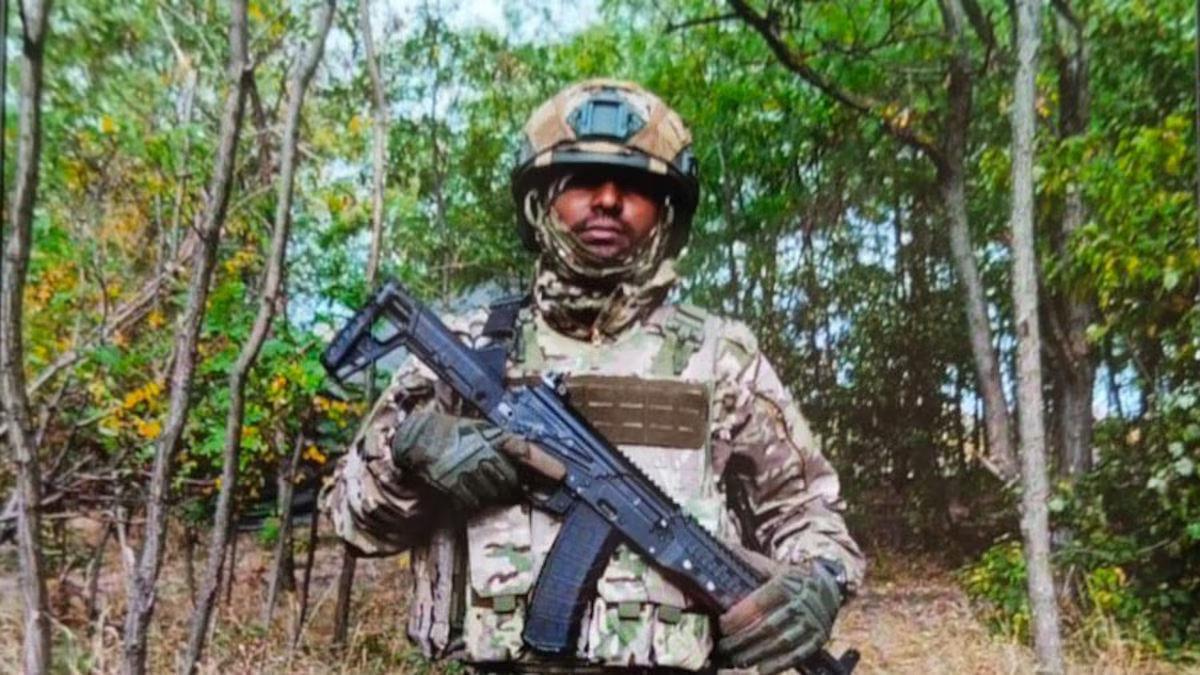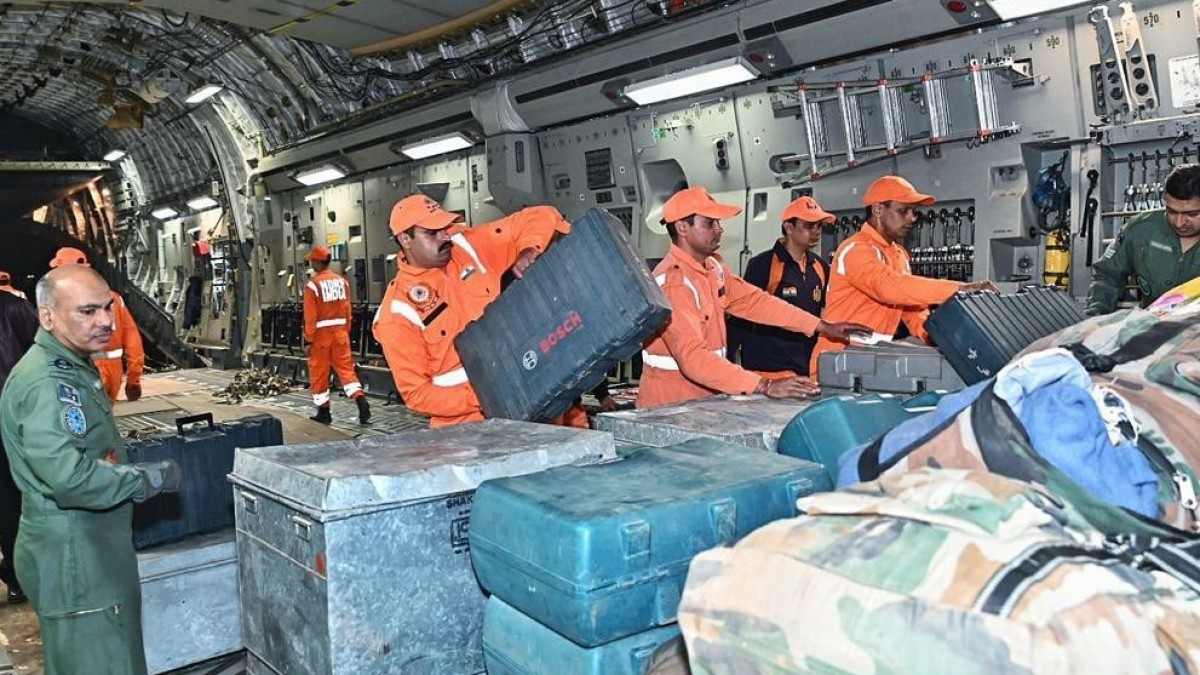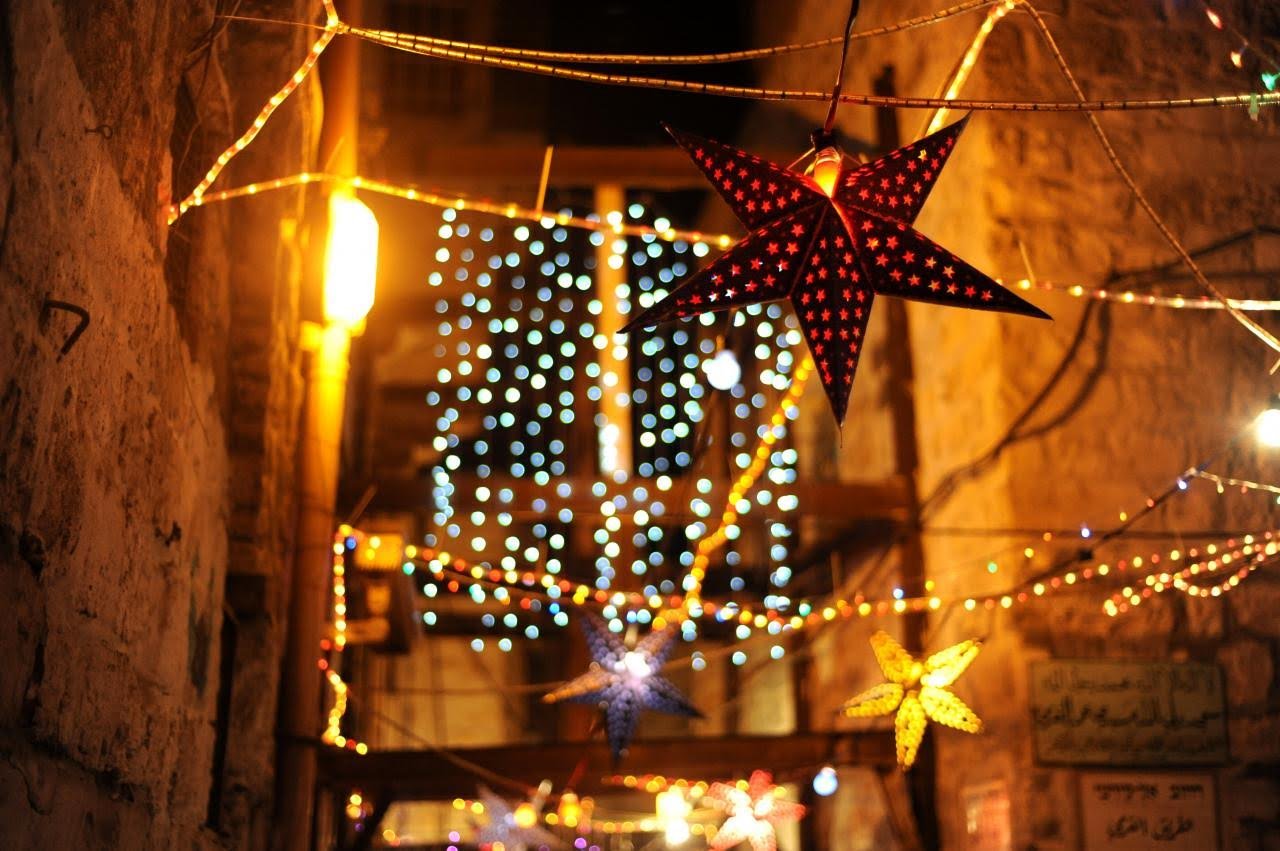Survivors cried out for help from within mountains of debris as first responders contended with rain and snow
Adana (Turkey): Rescuers in Turkey and war-ravaged Syria searched through the frigid night into Tuesday, hoping to rescue more survivors from the rubble after a 7.8 magnitude earthquake killed more than 4,000 people and toppled thousands of buildings across a wide region, a report in The Tribune, Chandigarh, says.
Authorities fear the death toll from Monday’s pre-dawn earthquake and aftershocks would keep rising as rescuers looked for survivors among tangles of metal and concrete spread across the region beset by Syria’s 12-year civil war and refugee crisis.
Survivors cries for help could be heard from within mountains of debris as first responders contended with rain and snow. In the meanwhile there has been no let-up in seismic activity, including another jolt nearly as powerful as the initial quake.
Workers carefully pulled away slabs of concrete and reached for bodies as desperate families waited for news of loved ones.
“My grandson is 1 1/2 years old. Please help them, please. … They were on the 12th floor,” Imran Bahur wept by her destroyed apartment building in the Turkish city of Adana on Monday, Feb 6.
Tens of thousands left homeless in Turkey and Syria faced a night in the cold. In the Turkish city of Gaziantep, a provincial capital about 33 kilometers (20 miles) from the epicentre, people took refuge in shopping malls, stadiums, mosques and community centres.
Turkish President Recep Tayyip Erdogan has declared seven days of national mourning.
US President Joe Biden called Erdogan to express condolences and offer assistance to the NATO ally. The White House said it was sending search-and-rescue teams to support Turkey’s efforts.
The quake, which was centred in Turkey’s southeastern province of Kahramanmaras, sent residents of Damascus and Beirut rushing into the street and was felt as far away as Cairo.
It piled more misery on a region that has seen tremendous suffering over the past decade. On the Syrian side, the area is divided between government-controlled territory and the country’s last opposition-held enclave, which is surrounded by Russian-backed government forces. Turkey, meanwhile, is home to millions of refugees from the civil war.
In the rebel-held enclave, hundreds of families remained trapped in rubble, the opposition emergency organisation known as the White Helmets said in a statement. The area is packed with some 4 million people displaced from other parts of the country by the war. Many live in buildings that are already wrecked from military bombardments.
More than 7,800 people were rescued across 10 provinces, according to Orhan Tatar, an official with Turkey’s disaster management authority.
The region sits on top of major fault lines and is frequently shaken by earthquakes. Some 18,000 were killed in similarly powerful earthquakes that hit northwest Turkey in 1999.
The US Geological Survey measured Monday’s quake at 7.8, with a depth of 18 kilometers (11 miles). Hours later, a 7.5 magnitude temblor, likely triggered by the first, struck more than 100 kilometers (60 miles) away.
The second jolt caused a multistory apartment building in the Turkish city of Sanliurfa to topple onto the street in a cloud of dust as bystanders screamed, according to video of the scene.
Thousands of buildings were reported collapsed in a wide area extending from Syria’s cities of Aleppo and Hama to Turkey’s Diyarbakir, more than 330 kilometers (200 miles) to the northeast.
It piled more misery on a region that has seen tremendous suffering over the past decade. On the Syrian side, the area is divided between government-controlled territory and the country’s last opposition-held enclave, which is surrounded by Russian-backed government forces. Turkey, meanwhile, is home to millions of refugees from the civil war.
Freezing temperatures could reduce the time frame that rescuers have to save trapped survivors, said Dr. Steven Godby, an expert in natural hazards at Nottingham Trent University. The difficulty of working in areas beset by civil war would further complicate matters, he said.
Offers of help — from search-and-rescue teams to medical supplies and money — poured in from dozens of countries, as well as the European Union and NATO. The vast majority were for Turkey, with a Russian and even an Israeli promise of help to the Syrian government, but it was not clear if any would go to the devastated rebel-held pocket in the northwest.
The opposition’s Syrian Civil Defense described the situation in the enclave as “disastrous.” The opposition-held area, centred on the province of Idlib, has been under siege for years, with frequent Russian and government airstrikes. The territory depends on a flow of aid from Turkey for everything from food to medical supplies.
UN spokesman Stephane Dujarric said 224 buildings in northwestern Syrian were destroyed and at least 325 were damaged, including aid warehouses. The UN had been assisting 2.7 million people each month via cross-border deliveries, which could now be disrupted.
In the small Syrian rebel-held town of Azmarin in the mountains by the Turkish border, the bodies of several dead children, wrapped in blankets, were brought to a hospital.
In the Turkish city of Kahramanmaras, rescuers pulled two children alive from the rubble, and one could be seen lying on a stretcher on the snowy ground. Turkish broadcaster CNN Turk said a woman was pulled out alive in Gaziantep after a rescue dog detected her.
In Adana, 20 or so people, some in emergency rescue jackets, used power saws atop the concrete mountain of a collapsed building to open up space for any survivors to climb out or be rescued.
“I don’t have the strength anymore,” one survivor could be heard calling out from beneath the rubble of another building in Adana as rescue workers tried to reach him, said Muhammet Fatih Yavuz, a local resident.
*****************************************************************
Readers
These are extraordinary times. All of us have to rely on high-impact, trustworthy journalism. And this is especially true of the Indian Diaspora. Members of the Indian community overseas cannot be fed with inaccurate news.
Pravasi Samwad is a venture that has no shareholders. It is the result of an impassioned initiative of a handful of Indian journalists spread around the world. We have taken the small step forward with the pledge to provide news with accuracy, free from political and commercial influence. Our aim is to keep you, our readers, informed about developments at ‘home’ and across the world that affect you.
Please help us to keep our journalism independent and free.
In these difficult times, to run a news website requires finances. While every contribution, big or small, will makes a difference, we request our readers to put us in touch with advertisers worldwide. It will be a great help.
For more information: pravasisamwad00@gmail.com











